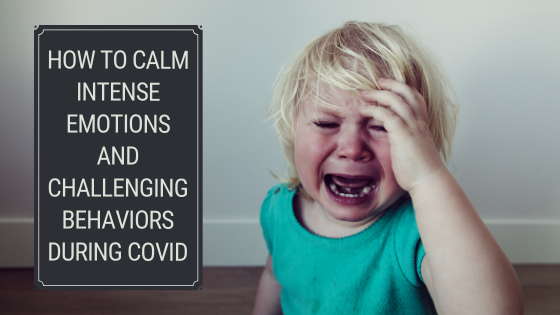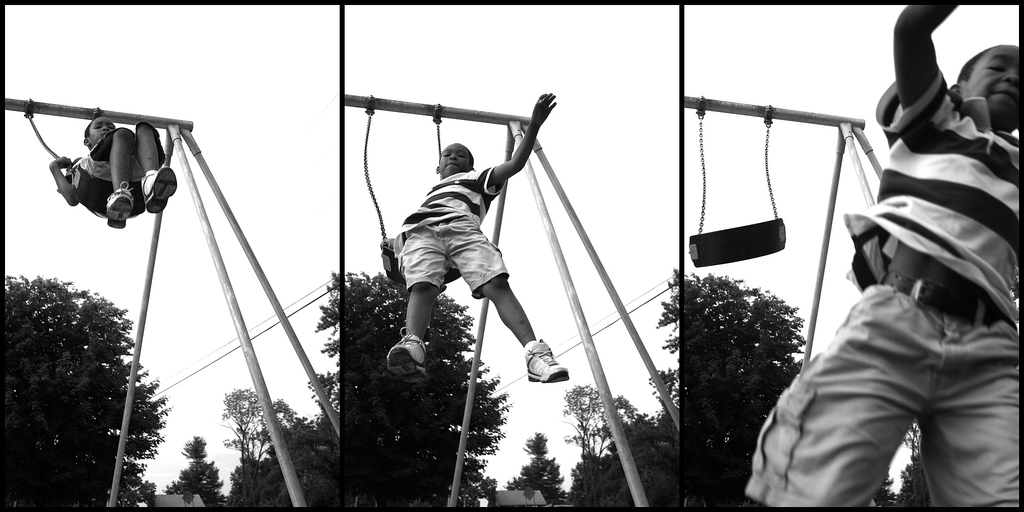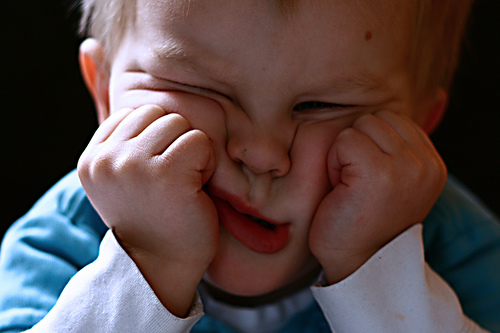If your child’s emotions and behaviors are more intense during sheltering-in-place than they are normally. You are not alone.
We have so much gratitude for medical workers right now. And we think that parents are also on the “front lines” in a way.
Even though it’s not recognized by the government or in the media, parents are providing “essential services” to their families.
Here are 7 parenting strategies to move from surviving to thriving, while everyone is home.
Whether you have younger or older kids, we hope these strategies are simple and do-able.
And if you missed Part 1 with tips about homeschooling while working go here.
Tend to their feelings
The deepest needs of your child are to be seen, soothed, feel safe and secure. In this time of uncertainty, when they (and you) may be experiencing some big feelings, your kids will likely need more of your loving presence, not less.
During a challenging time, it’s reasonable for kids to resort to some “earlier behaviors” in an attempt to meet their needs. If you find that your child is more upset than usual, acting less mature, less able to cope, quicker to get frustrated, this is expected.
Behavior is communication. Your child’s behavior may be his way of saying, “I miss my friends, school, the way things used to be. This is different. I don’t understand all the changes that have happened.” Even teens–and adults–may resort to some early behaviors in an attempt to cope.
When your child displays less mature behavior, empathize with him. Say, “I’m guessing you really miss X. You’re disappointed by Y. You really wanted to do Z.”
Sometimes parents think that talking to our kids about their uncomfortable feelings will make the feelings grow, usually the opposite is true. When we talk about feelings it makes it easier for us to cope.
For young children create a flexible routine
Back when Jason and I taught preschool together we would create a “plan for the day” for the kids. It was a basic routine, drawn out in symbols and stick figures, that we used with young kids so that they know what to expect. But for your sanity, and theirs, keep it flexible.
When kids know what to expect it calms them. Creating a plan with your kids can be especially useful if your child struggles with anxiety, transitions, or focus.
Give adolescents freedom to create their own plan
For adolescents, autonomy decreases stress. They might not want you to create a plan for them, or even with them. They might not even want to create a plan for themselves. This time could be a wonderful opportunity for them to develop a new hobby or interest, experiment or create, or just be bored and see what happens.
Be your child’s coach or consultant. Rather than telling kids what to do each day, ask them questions. What is their plan? What help do they need? What worked yesterday? What didn’t work yesterday? What are they going to do differently today?
Relax limits on screen time
There are a lot of high-quality uses for screens while sheltering-in-place. Relax your limits on screens to allow for your children to connect with their friends, get their schoolwork done, create, experiment, and be entertained.
Just like the days “pre-COVID”, be curious about how your kids are using screens. Connect with them and ask questions. Watch things together.
Ask thought-provoking questions or be genuinely curious like: What do you like about this video? What videos annoy you? What would you do if you were in that same situation? Is that how people act in real life?
If your child is watching more screens, use it as a way to connect and have deeper conversations. Ask to play the game or watch the video with them.
If you're concerned about how to keep them safe online, Janell Burley Hofmann talks about it with us here.
Do “one-on-one time” with kids
When I taught preschool, our youngest daughter was also one of my students. Most of my day was spent paying attention to other people and things, not her. So I did one-on-one time with her in the morning at the school, before I started teaching.
Often it was simply 5-minutes of reading a book together on the couch and being present with her. We were both filled up by the time together and the snuggle.
If you have a child who craves your presence and connection, try spending one-on-one time with her first, before you start your work. And also at various times during the day. Put it on your schedule and their “plans for the day”. This investment of time may prevent or shorten the meltdown later in the day.
Put the relationship first
This COVID situation is temporary. We will get through it. There’s a saying that “children don’t remember what we did, they remember how we made them feel”.
Put your relationship with your child FIRST. Even if your child does very little academic work during this time, she will make that up. A few months of missed school work will likely not have a lasting impact on her life.
What our kids will remember about this time is how they felt. Our connection and our relationship with them will have a lasting impact on their life. Rather than schoolwork, focus on the relationship, having fun together, and growing closer.
Look at this time as an opportunity to strengthen your relationship.
Ask yourself… a year from now, how do I want my child to remember this time?
Think of 3 words that–a year from now–you want your kids to use to describe their experience during this pandemic.
A mom recently gave me her answer. She wants her son to remember: Fun, Freedom, and Family.
Great! Then anything that’s not “Fun, Freedom, and Family” let’s minimize, or stop entirely.
Let’s trust that our kids will figure this thing out. Let’s trust that they will eventually do useful and meaningful things with their time.
This might not happen overnight, and it might not happen until after they’ve watched a bunch of videos on YouTube. But it will happen.
I’m not saying you can’t have limits. Have your limits. Have your boundaries. But also, let’s relax. Let’s trust our kids.
One of our most important jobs as parents is to create memories for our kids. Their memories protect them and serve them for the rest of their lives.
So the question now is yours…
A year from now, what 3 words do you want your kids to use to describe their experience?
Put your answer in the comments. I read and respond to every single one!
If you missed Part 1, read it here.










Cindy, great ones!
Love, family, connection. We have some work to do to get consistency on the amount of connection time everyday, but this is certainly a helpful anchor back to what really matters. Thank you for posting this!
Relaxation, family, closeness
Great ones, Tasha!
Jen, yes, I hear you. Because the demands of our own work and our kid’s schooling are so high… it’s impossible to do both well. When I’m at my wits end, it is a good time for me to ask myself “How do I want my kids to remember this time?” because it helps prioritize everything. When I’ve articulated what we want our kids to learn or remember a year from now, then it becomes clearer how I need to act today. I can ask myself “Am I acting in a way that will create the outcome I want for my kids?” and I can change my parenting accordingly. Hope that helps! Hang in there. Big hugs to you!
1.Connect (with God, family, friends, less fortunate etc)
2.Forgive (and forget),
3. Patience (Lots and lots of it!) :)
Great, Fatima!
I’d like to share that relaxing screentime with my younger kids has made my life harder, not easier. I think it might work with older kids, but with children 6 ish and under it seems like a recipe for more meltdowns. So unless I’m planning to watch it with them and be there through the meltdown, I’ve cut out all screentime for the last year and it’s made my life easier, not harder. It’s hard in the first couple weeks when they’re asking to watch things, but if you’re firm and kind they will move onto other things. Now my kids are amazing at playing by themselves. I think the screens were increasing their feelings of boredom and anxiety, which resulted in more screentime, which resulted in more boredom and anxiety. It was a bad cycle!. That said, we are connecting with family and friends through video calls, but I guess I don’t count that as screentime because they’re interacting with another person instead of watching a fixed video. Also they don’t seem to meltdown as much afterward. Also we do watch stories from sparkle stories on YouTube, but they’re told with so much love and feeling by a real person that my kids have never had a meltdown after. I watch it with them because I want to learn how to tell stories like that! I’m not saying you shouldn’t use screen time, but it’s worth evaluating if it’s really working for you. I want to offer encouragement that it may be hard to give it up at first, but in the end you might find that it’s easier. It’s all about what you can handle and what works for your family.
Time, mum, choice
Nice, Hilary!
Do you have an example of a daily schedule for a child that is struggling during this time with regression of agitated behavior?
Before coming up with a flexible schedule, I’d might first work with the child to come up with a plan for how to avoid/change/cope with situations where he gets agitated. I’d create a written plan with him, of things that he can do to calm. Using the worksheet here. https://www.happilyfamily.com/ With young kids the routine in the classroom was pretty simple: sing songs, activity, break, activity, clean up, lunch, rest, activity. Hope that helps!
Calm, connected and healing
That’s great, Ashley! xox
We were close, we allowed all our feelings, we were kind.
Love it!